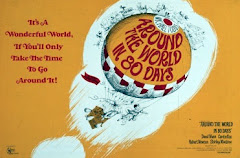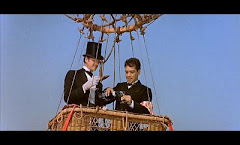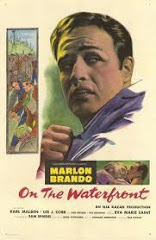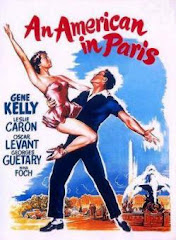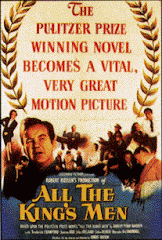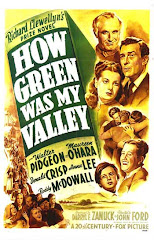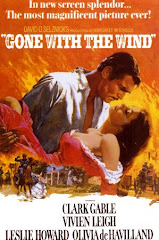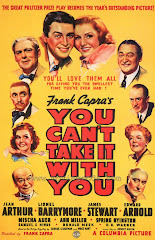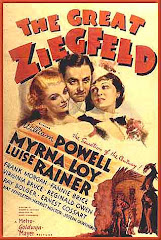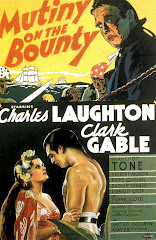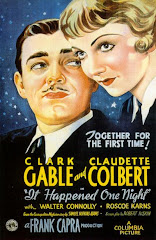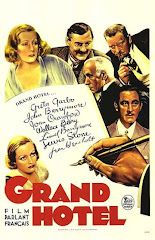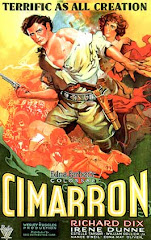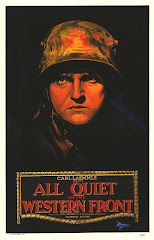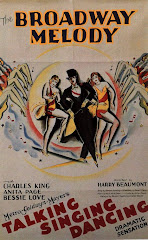Director: Michael Curtiz
Cast: Humphrey Bogart, Ingrid Bergman, Paul Henreid, Claude Rains, Sydney Greenstreet, Peter Lore, Conrad Veidt
Genre: Romance/Drama
Other Nominees: For Whom the Bell Tolls, Heaven Can Wait, The Human Comedy, In Which We Serve, Madame Curie, The More the Merrier, The Ox-Bow Incident, The Song of Bernadette, Watch on the Rhine
And so chronologically we come to the first Best Picture Oscar Winning film that I had seen before taking on this challenge to watch the entire list. This movie had an honored spot in my DVD collection beforehand and in a way my love for the film has made it more of a challenge to write a synopsis. After all I am arguably writing about the most popular Best Picture Winner of all time. I can say that, although I know that this thought is premature, I personally am not sure I will find another movie on the list that betters
Casablanca.
As the name suggests
Casablanca is set in the desert city of Morocco after the Germans had occupied France during World War II. The city was bustling at the time, filled with refugees of all status who were attempting to flee Europe and their Nazi oppressors. These refugees all had one destination in mind: America. As the opening narration explains most of them were on a roundabout journey to get there. This journey took them from the port city of Marseilles, France across the Mediterranean by boat to Oran, Algiers. And from there they trekked to Casablanca, Morocco hoping to continue on to Lisbon, Portugal. Lisbon was a rare European city from which ships still sailed the Atlantic to America.
But as we learn most refugees never reach Lisbon and find themselves permanently stalled in Casablana. For corrupt officials controlled the necessary exit visas required to leave and these were only exchanged for large amounts of money or even for sexual favors. Crooked gambling houses sprang up and preyed on the hopeless. In an early scene a pickpocket whispers a warning to his victim telling him to be careful, that
“this place is full of vultures, vultures everywhere”!
Whether you agree with the accolades bestowed on Casablanca or not you cannot argue with its “quotability”. I have listed here the better known quotes but in my view you could take the script and have a successful social life recycling almost all of it. While some have argued that the writing comes across as corny I feel that this may be the one film that can get away with such cliched speech, which is a credit to the actors involved.
“Play it once, Sam. For old times sake..”
“Here’s looking at you, kid.”
“Of all the gin joints in all the towns in all the world, she walks into mine.”
“Round up the usual suspects.”
“Louis, I think this is the beginning of a beautiful friendship.”
“Maybe not today, maybe not tomorrow, but soon and for the rest of your life.”
“We’ll always have Paris”
“The problems of three little people don’t amount to a hill of beans in this crazy world.”
While the above quotes reflect the drama and romance found in the film it is the comedy that makes this film easy to watch. Particularly funny are the conversations between Humphrey Bogart’s character and Louis Renault, the captain of the local police played with guile by Claude Rains.
Louis: What in heaven's name brought you to Casablanca?
Rick: My health. I came to Casablanca for the waters.
Louis: The waters? What waters? We're in the desert!
Rick: I was misinformed.
Major Strasser: What’s your nationality?
Rick: I’m a drunkard.
Louis: That makes Rick a citizen of the world.
In another great moment the prefect of police is asked to find a reason to close Ricks and he announces that he is shocked to find that gambling is going on there. Right as he says this a cashier is bringing him his winnings from his nights gambling which he stuffs into his pocket. This wit and humor hardly ever lets up and helps tremendously with the films pace.
In Casablanca, Rick (Humphrey Bogart) is a cold hearted debonair whose staunch neutrality to both the war effort and to people around him is shattered when his past comes back to haunt him. Ilsa (Ingrid Bergman) is his past and a woman torn between love and commitment, between what she wants and what is right. Ingrid Bergman may also be one of the most beautiful women ever captured on screen. In this film she is no less than stunning. Victor Laszlo (Paul Henreid) is a revolutionary, escaped from a German concentration camp and propagating resistance to the Nazi Party wherever he goes while Captain Renault is the corrupt local official profiting from the refugees plight as they flee across the globe. I should also mention Signor Ferrari (Sydney Greenstreet), the kingpin of all local criminal activities, and Rick’s main rival. It is a combination of these five characters that give the comedy, the drama, and the romance real life in this film. But while all of these characters are essential to the success of
Casablanca there can be no doubt that the story rests heavily on the shoulders of the two reunited lovers, Rick and Ilsa.
The first we see of Rick is his confident signature of authority on paperwork, an ode to his “all business” demeanor. As the camera pans wide we see the owner and proprietor of
Ricks Americain Café, smoking and drinking scotch by himself. He is isolated from those around him but has a magnetic swagger of coolness about him. Early on we see him reject a woman and cruelly eject her from his bar, a woman who was clearly in love with him and perhaps was led on by him. He is indifferent to her or to anyone’s feelings and his life is full with profit and loneliness. Rick is a man who
“never drinks with customers” and who
“sticks his neck out for no man”, two quotes that sufficiently sum him up as the film begins.
Despite his isolationism or perhaps because of it, Rick still manages to be the most sought after social companion in Casablanca and when a local thief comes into possession of “letters of transit”, letters which would allow the bearer to travel freely and unquestioned across German territory, he entrusts them to Rick before being captured and killed. As if Rick was not powerful enough to begin with he is now granted the ultimate position of power in the community, the ability to grant escape from the Nazis to anyone he wishes.
But here and there we get small hints that suggest to us that Rick was not always this greedy and self-involved. For one, he refuses to allow German bankers to gamble in his casino no matter how high they rank in society, while we also see his refusal to take German money when he tears up a check left by a German soldier. If he is not outspoken about his political beliefs it is clear that he hides some conviction on the matter. We also hear rumors that he ran guns to the resistance in Ethiopia and fought the fascists in Spain. So like the refugees that run from Europe Rick too is running from something and soon after obtaining the letters his past walks into his bar to meet him.
Victor Laszlo, a famous Czech resistance leader who had escaped a Nazi concentration camp and further evades Nazi forces across Europe, had arrived in Casablanca and seeks passage to America so that he can continue his important political work. On his arm is Ilsa and it is Ingrid Bergman’s character that comes right out of Ricks past. The impact she has sees his cool façade crumble into anger and sees him show weakness, but ultimately her arrival provides for Rick the chance for redemption.
Sacrifice is a huge theme of this film and Rick and Isla are asked to sacrifice much for the greater cause. The film has been described as an allegory to the United States own personal journey and this sacrifice, along with the changes we see in Rick, mirror the journey that the United States had just gone on. For the country had changed from the cynical and isolationist mind frame that followed the first World War to the renewal of patriotism and commitment to a greater good experienced during World War II. You may find it interesting to know that this film premiered at the Hollywood Theater in New York City on the same date that the Allied invasion of North Africa began and the city of Casablanca was captured. This was November 26th, 1942.*
I will leave you with a description of a great scene from
Casablanca. While it is not the famous final scene, the one that is littered with many of the quotes I have mentioned above, it is absolutely my favorite.
The German soldiers are gathered around a piano in one corner of the bar and as the beer flows they begin to sing nationalist songs. Their voices are loud and prideful and practically beat on the rest of the bar. The people are sullen and withdrawn as they listen to the Nazi songs. They are beaten. Rick, hearing German songs being played in his bar, steps out onto the balcony but does nothing to stop the singing. He simply watches as Victor Laszlo strides to the house band and asks them to play “La Merseillaise”, the French national anthem. Rick nods his approval. At first Laszlo sings alone and is barely heard above the Germans but within seconds the patrons are stirred from their stupor and with their own patriotism rekindled they drown out the Germans with a rousing chorus. The German soldiers retreat sulkily to their beers.
The excitement in this scene is infectious and as impactful as any battle scene could be. It is both uplifting and inspiring, and summarizes what this film is about. For while the love between Rick and Isla takes center stage there is a cause far more important all around them and this cause has the potential to drown out any tears that result from whatever sacrifice is asked of them, and from whatever sacrifice they choose to make.
Up Next: Going My Way
* It officially released on January 23rd, 1943.




